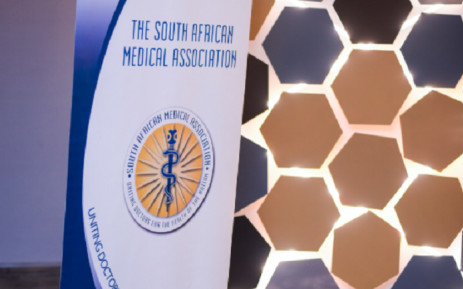
Labour Registrar: Sufficient evidence Sama unduly benefited from Samatu
The administrator wants the South African Medical Association liquidated – saying it owed the trade union close to R400 million in membership fees alone. But the medical association is fighting to hold on to Samatu’s assets, arguing it never intended to register it as a union.
by Theto MahlakoanaJOHANNESBURG – Labour Registrar Lehlohonolo Molefe said there was sufficient evidence that the South African Medical Association (Sama) had been operating and benefiting financially from its registration of the South African Medical Association Trade Union (Samatu).
This is contained in an affidavit Molefe filed in one of the many court battles the administrator appointed to investigate the running of the trade union and the medical association.
The administrator wants Sama liquidated – saying it owed the trade union close to R400 million in membership fees alone.
But the medical association is fighting to hold on to Samatu’s assets, arguing it never intended to register it as a union but rather as a professional body for doctors.
As the battle between the trade union administrator and the medical association over the former’s assets rages on, the Labour Registrar has painted a picture of possible criminality on the part of Sama.
Despite establishing a union to deal with the labour matters of employed doctors in 1996, Sama failed to treat the association and union as separate entities.
Advocate Molefe, who applied to the court to have the union placed under administration late last year, states in his affidavit that Sama had over the years acquired assets, received funds from National Treasury for membership fees and shop fees from the Public Service Coordinating Bargaining Council – in the name of the trade union - but the money was used for the association’s benefit.
Some of the assets acquired by Sama throughout the years include more than five profit-making subsidiaries.
Members and former leaders of the union launched a court application in September 2019, raising issues including the possibility of fraudulent conduct by Sama directors – which culminated in the trade union being placed under administration.
Molefe said the trade union had not accounted to his office as Registrar of Labour Relations as required by law, while membership fees and agency shop fees were received by Sama which used the funds at their discretion.
The Department of Labour has been warning Sama and Samatu for years now; with a 2016 letter to the association describing the relationship between Sama non-profit company and the Sama trade union as a cause for concern.
ADMINISTRATOR DESCRIBES CONDUCT OF SAMA DIRECTORS AS UNLAWFUL
The trade union’s administrator Gerhard Vosloo has described the conduct of the medical association as unlawful.
In papers before the courts, Vosloo argues that Sama unlawfully accounted for the union’s income as the association’s income since the inception of the trade union in 1996 and it will require the joint efforts of a liquidator and him as administrator to get to the bottom of the intricate matter.
The administrator’s terms of reference include that he must investigate any financial irregularities relating to assets and affairs of the trade union, and where necessary, action be taken against any person guilty of misconduct and a crime.
Vosloo states in his application for Sama to be wound down that the directors of the association have since the registration of the trade union “unconscionably abused the corporate personality of the trade union by using it to unlawfully divert and misappropriate funds – which by law only the trade union was entitled to.”
Given the many court challenges Sama has launched to stop the administrator from accessing records relating to the union’s affairs, Vosloo concludes that the barrage of litigation is meant to avoid its legal obligations towards the trade union.
He cites a recent letter written by Sama directors to the Labour Registrar requesting that the trade union’s name be changed back to its former name – the Medical Association of South Africa – which was changed to Samatu 18 years ago, as a scheme to continue operating as a trade union amidst the administration process.
Should the administrator fail to establish new structures of the union and make it functional, the Registrar and the courts will have no choice but to deregister the union – to the detriment of about 7,500 public service doctors registered with it, and need workplace protection through provisions in the Labour Relations Act.
Sama has argued that the employed doctors' R453 monthly contributions were not union fees but rather membership fees to the association.